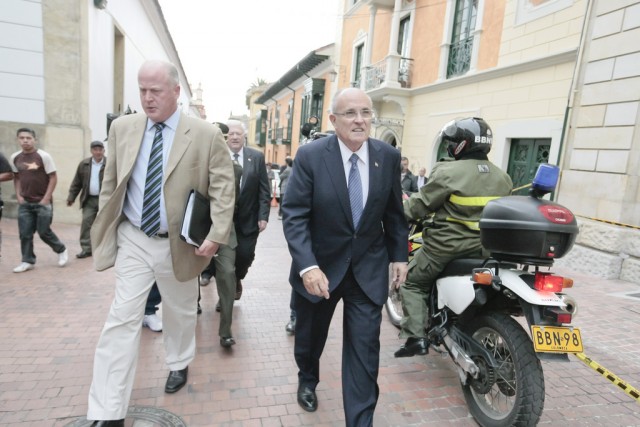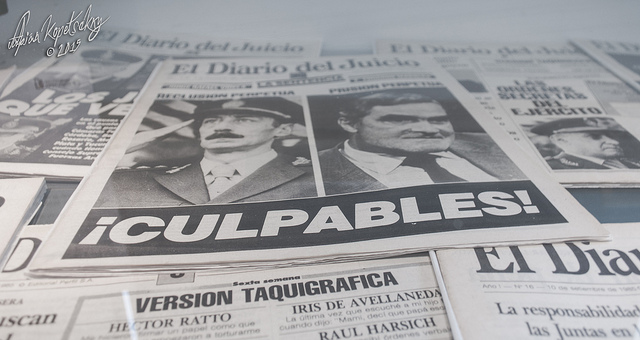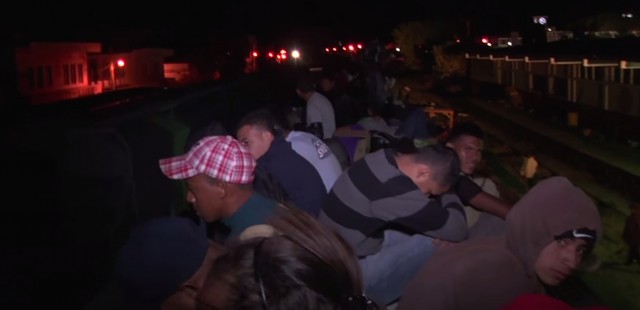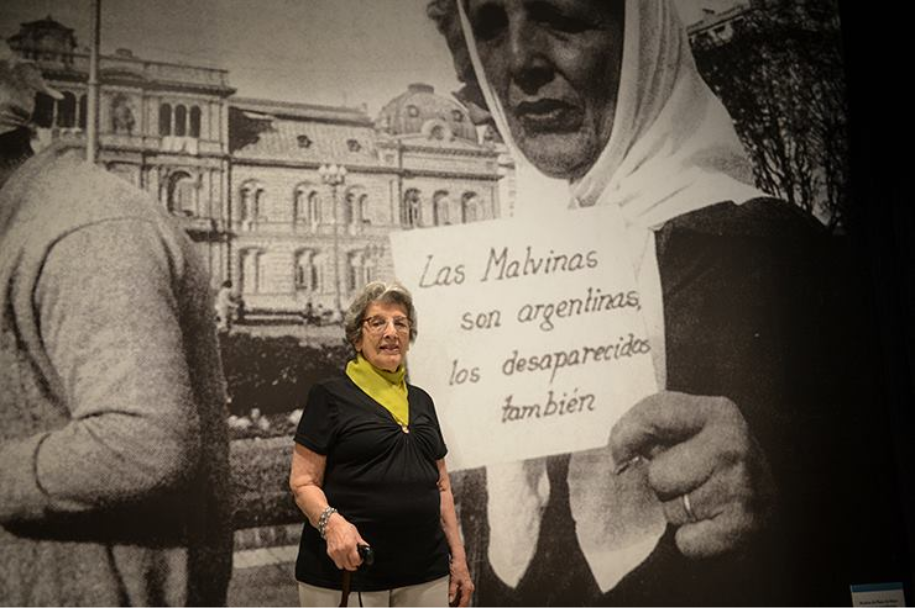
Central America, Dispatches, El Salvador
Rudy Giuliani Will Advise El Salvador on Security, Justice Reform
January 12, 2015 By Laura C. Mallonee
On Dec. 2, El Salvador’s business community announced it had hired former New York City Mayor Rudy Giuliani to advise the Salvadoran government on how to curb soaring crime driven by lawless gangs and rampant corruption. At 43.9 murders per 100,000 residents, according to the 2014 Global Status Report on Violence Prevention, the country’s homicide rate exceeds those of some war zones.
On Jan. 18, according to La Página, Giuliani Security & Safety CEO John Huvane will arrive in the capital San Salvador with a small team of researchers. Aside from assessing the effectiveness of the country’s law enforcement, Huvane’s team will analyze the criminal justice from the moment police arrest a suspect to their incarceration or release. (An investigation by the La Prensa Gráfica newspaper in 2013 revealed that some 95 percent in the preceding three years had gone unpunished by a judiciary burdened with corruption). In a recent interview with that newspaper, Huvane likened the process to a “checkup.” Once a “diagnosis” is reached, he said, Giuliani will travel to the city in March to suggest changes to policy.
It’s not the first time the ex-mayor has advised a Latin American country on security. Since 2002, Giuliani has built a successful post-political career — as has his former Police Chief Bill Bratton (who recently reclaimed his old job) — exporting his security expertise to countries hoping to benefit as New York once did.
Giuliani’s public image as a crime-buster achieved near-mythical status after his reign as “America’s Mayor” between 1993 and 2001. During that period, the FBI Uniform Crime Index showed that crime in New York fell by 56 percent, while crime nationwide fell by 16 percent. The murder rate itself decreased by 66 percent, shootings by 77 percent, rape by 45.7 percent and robberies by 67.2 percent. Giuliani and his supporters have credited the city’s transformation to his “zero tolerance” policies. Under a policy known as “broken windows,” Bratton instructed the city’s beefed-up police force to target small infractions like jaywalking and graffiti tagging under the premise that criminals who commit minor infractions will eventually commit major crimes.
Since then, many have questioned this strategy’s long-term effects. As a 2004 paper by the Center on Juvenile and Criminal Justice noted, it gave relatively harmless people criminal records, “thus hindering their job prospects … and perhaps even propelling them into more crime, especially drug crimes.”
Other legacies of Giuliani’s policies have also been scrutinized. Critics say CompStat, a crime-measuring and intelligence-sharing system that was among Police Chief Bill Bratton’s greatest achievements, put massive pressure on officers to reduce crime and led some to manipulate the data. They also claim Giuliani’s approach paved the way for controversial policies like “stop-and-frisk,” creating an environment in which an emboldened police force could abuse citizens with impunity — as protesters in New York believe happened to Eric Garner.
Most importantly, many question whether Giulani’s aggressive promotion of “broken windows” was the main cause of New York’s historic reduction in crime. In a 2006 paper published by the University of Chicago Law Review, Bernard E. Harcourt and Jens Ludwig found that the crime drop coincided with the end of the crack cocaine epidemic, while others have pointed out that it occurred at a time of solid economic growth, among other factors that could have improved public safety.
However, criticism of Giuliani’s policies in the U.S. hasn’t dampened the hopes of some Latin American countries. In 2002, Mexico City’s business elite hired him to consult on crime. His 146 recommendations included developing a CompStat-like system for the police and cracking down on the city’s street window washers, as he famously did in New York. “Sure, there are differences between New York City and Mexico City,” he told reporters that year, “but I’m not sure those differences are relevant to crime reduction.” A $4.3 million fee and a year later, crime had only fallen 1 percent. By 2005, Mexico City Police Chief Joel Ortega told reporters, “I am no fan of Giuliani.”
Guatemala’s business sector also hired Giuliani to advise on crime earlier in 2014. This time, the ex-mayor warned his clients that what works in one place may not work in another, though his final recommendations seemed comparable to those he gave Mexico. “When you have a tremendous amount of crime in your society, you are not going to solve it with schools, libraries, nice neighborhoods and sports teams,” he said in an October speech in Guatemala City. “You have to emphasize law enforcement.”
Giuliani is similarly advising the Brazilian government on security for the 2016 Olympic Games in Rio de Janeiro, although the games’ Security Director Luiz Fernando Corrêa has expressed some skepticism. In a September 2013 press release, he was quoted emphasizing that Giuliani’s zero-tolerance policies are “not suited” for Latin American culture. “We follow the successful model of Bogotá and Medellín, which is citizen security,” he said.
First implemented in Colombia in 1994, the “citizen security” model was a reaction to the failure of earlier “Mano Dura” or “iron fist” policies. Whereas the latter stressed enforcement, citizen security emphasized violence prevention and social development. This approach has been credited with bringing Bogota’s murder rate down from 80 per 100,000 people in 1993 to 28 in 2004, according to a 2011 World Bank report. Medellín’s homicide rate of 381 murders per 100,000 people in 1991 has since fallen more than 80 percent, according to the Inter-American Development Bank. In a 2011 interview, Amerigo Incalcaterra, the Latin American regional representative of the UN High Commissioner for Human Rights, said that for countries in the region to succeed in lowering levels of violence, they must prioritize such citizen security approaches over so-called “manodurismo”.
Within the last few years, though, Colombia has seen a crime uptick, prompting officials to consult with Giuliani. “I just got back from Colombia,” he said on CBS This Morning last May. “I advise the Colombian government how to get crime down. Crime is down 23 percent in Bogota. I am very proud of that.”
Not everyone was happy, though. In a scathing November 2013 op-ed published by Razón Pública, two scholars — Woodrow Wilson Center fellow Juan Carlos Garzón Vergara and University of the Andes professor Samir Farid Benavides Vanegas — decried their country’s newfound acceptance of what they called repressive policies. “Nothing is more distant from an agenda that is inclined to peace than to opt for the ‘zero tolerance’ model based on police repression,” they wrote. “Our concern for safety should not lead us to adopt models that are not sufficiently validated and studied.”
Security experts in El Salvador now have similar worries. On the talk show Megavision, Jeannette Aguilar, director of the UCA’s Institute of Public Opinion, said she fears that zero tolerance policies could usher in a new wave of manodurismo.
First adopted by President Francisco Flores in 2003, the heavy-handed approach to security gave police more power to arrest suspected gang members and mete out harsher prison sentences. Though a Salvadoran court declared the policy unconstitutional a year after it was launched, it lived on through the so-called “Super Mano Dura” of Flores’s successor, Elías Antonio Saca. Far from cleaning up the streets, it made gangs smarter, more organized and ultimately fueled their criminal expansion into contract killings, extortion and trafficking. In the meantime, prison overcrowding led to human rights abuses, including fires set deliberately by prison staff that claimed hundreds of lives.
The fact that the National Association of Private Enterprise (ANEP) is paying for Giuliani’s advice is seen by some as an attempt by the political right to pressure the government. After coming to power this September, President Salvador Sánchez Cerén of the left-wing FMLN party rolled out a citizen security plan following former Salvadoran President Mauricio Funes’s earlier attempt to turn away from manodurismo. Speaking on the same talk show as Aguilar, former Attorney for the Defense of Human Rights Beatrice de Carrillo said ANEP’s actions leave Sánchez Cerén “between a rock and a hard place.” While accepting Giuliani’s suggestions could sacrifice his sovereignty, not doing so could isolate him from the business community. (Giuliani Security & Safety did not respond to requests for comment, nor did El Salvador’s Attorney General.)
El Salvador also differs from New York in important ways. Speaking to La Prensa Gráfica, Rodrigo Ávila, a former top police official, pointed out that New York’s homicide rate never exceeded 32 per 100,000 people. “[It] almost makes you laugh,” he said. While Giuliani’s challenge in New York wasn’t negligible, he never had to deal with widespread extortion, kidnapping and transnational criminal gangs that controlled entire neighborhoods.
Despite these problems, critics say they would be open to advice from Giuliani on how to weed out corruption from the nation’s judiciary. In August of this year, three judges were arrested for accepting bribes, while in 2012, La Prensa Grafica reported that over 80 percent of the country’s judges were under investigation for similar crimes. In an email to Latin America News Dispatch, Aguilar said recommendations for judicial reform would be “well received by various sectors” (except the justice sector, that is). Ávila similarly told La Prensa Gráfica he would also welcome judiciary reform, though the concept wouldn’t exactly be a new one. “These are ideas that have been said ad nauseam,” he complained, noting the old proverb that “no prophet is welcome in his own land.”
Image: Gina Parody, CC BY-NC-SA 2.0





